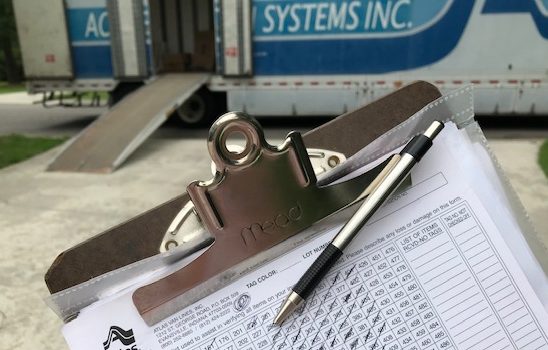Checklists are the cornerstone of any well-planned PCS. While stress may not actually appear on anyone’s to do list, it shows up every day of every transition. Military spouses, even those with plenty of moving experience, benefit from good ways to keep PCS stress in check.
“For me, the most stressful part of a PCS is all the decisions that need to be made,” says Marine spouse Lizann Lightfoot, blogger at The Seasoned Spouse and author of the upcoming book, Open When You Love Someone in the Military. “I like to take time and research the options and weigh the pros and cons before making a big decision. A PCS is usually a whole string of decisions that need to be made quickly.”
Kellie Artis, army spouse and chief operating officer for Millie, says the unknowns of moving cause her the most stress, and those unknowns complicate all the decisions to be made.
“I have a hard time with abstract or ambiguous, and what is a PCS if not both of those things?” she says. “Moving to a new city is a bit frightening. You may not know what to expect when it comes to the culture, climate, commutes, all sorts of things.”
Finding out as much as possible about a new location as soon as possible helps Kelly alleviate her stress and apprehension.
“I immerse myself in research to try and get the full picture of what our lives will look like at the next duty,” she says. “I also firmly believe in making informed decisions based on fact and reality, so having a trusted place to turn to for information is key.”
Good communication helps military families reduce stress during a move, and Lizann recognizes it’s not always easy to keep that balance, when each spouse has different ways of handling the situation.
“It’s very difficult to truly make decisions together as a couple during a PCS move,” she says. “My husband excels in that environment (of transition), and he slips into military leader mode. The more I hesitate, the more he takes charge, then I feel even more stressed. Not only am I responsible for all the details for myself and our five children—I also feel like my ideas aren’t being heard or valued.”
Kellie and Lizann offer these ten ways to check stress at every stage of a move:
1 ~ Lizann: As a couple, my husband and I reduce conflict with regular conversations and check-ins about big decisions we have to make about schedules, housing, or schools.
2 ~ Kellie: I learn as much as I possibly can about the place we’re moving to and start to embrace the base before we get there to save time once we arrive. What are the schools like? Where is Target? What is there to do on the weekends?
3 ~ Lizann: Before we leave, we plan some family activities to take everyone’s mind off the move. Local activities from our “bucket list” or dinner out at a favorite restaurant.
4 ~ Kellie: If you have children, involve them at an age-appropriate level so they feel like participants and not baggage!
5 ~ Lizann: We give our kids opportunities to say goodbye to their favorite people and places.
6 ~ Kellie: Plan your route to include a few fun (and COVID-Safe) stops like National Parks and other outdoor adventures.
7 ~ Lizann: After we move, we use some of my husband’s leave days to do fun family events in the new area. This helps us begin to feel like locals in our new town.
8 ~ Kellie: We try to settle into a new place as quickly as possible, and this means meeting people as well as unpacking boxes. Don’t skip opportunities to connect with your neighbors or community because you’re buried in packing paper.
9 and 10 ~ Lizann and Kellie agree that organization and self-care are both important ways to alleviate PCS stress. They advise creating a PCS binder or file to keep track of important paperwork, checklists, receipts, and other essentials. This saves time and reduces worry, which makes more time for self-care: plenty of sleep, connection with friends, exercise, and healthy meals whenever possible.
More helpful ideas for PCS season from Military Family Life:


